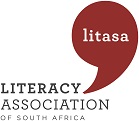Original Research
Languaging in and about Lunyole: African Storybook materials as a catalyst for re-imagining literacy teaching and learning in two Ugandan primary schools
Submitted: 17 September 2015 | Published: 15 July 2016
About the author(s)
Juliet Tembe, South African Institute of Distance Education, Johannesburg, South AfricaYvonne Reed, South African Institute of Distance Education, Johannesburg, South Africa; School of Education, University of Witwatersrand, South Africa, South Africa
Abstract
Throughout sub-Saharan Africa, many children are not learning to read competently in the first 3 years of primary school; thus, both ‘reading to learn’ and ‘reading for pleasure’ in these early years, and in higher grades, are constrained. Two of the many reasons for reading failure are the absence of suitable materials in languages with which learners are familiar and teachers’ limited knowledge of pedagogic practices that support reading development. In this article, we describe the African Storybook (ASb) initiative as one imaginative response to the dearth of interesting and accessible stories in local languages and report findings from the first phase of a professional development project in which teacher-researchers in two Ugandan schools are using ASb materials to ‘language’ in Lunyole at the meetings of their action research group. We argue that their investment in extending their literacy in a language which they speak more fluently than they read or write, and the contestations over written forms of this language that have surfaced in some of the discussions, are likely to be productive for their professional development as teachers and for their participation in ongoing community debates about the orthography of a recently codified and standardised language. By languaging together in Lunyole, with ASb materials as the main object of their conversations and activities, the teacher-researchers have begun to develop capabilities that are likely to benefit the Lunyole/ English biliteracy of the learners whom they teach. They are imagining new possibilities for themselves and for the learners.
Keywords
Metrics
Total abstract views: 3819Total article views: 5981
Crossref Citations
1. Countering linguistic imperialism with stories in the languages of Africa: The African Storybook initiative as a model for enabling in and out of school literacies
Yvonne Reed
South African Journal of Childhood Education vol: 9 issue: 1 year: 2019
doi: 10.4102/sajce.v9i1.637
